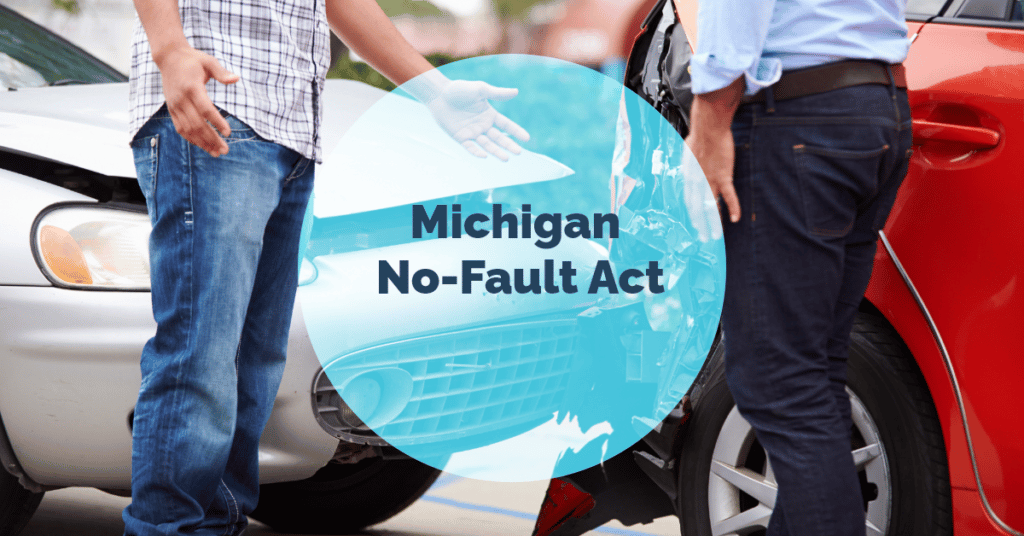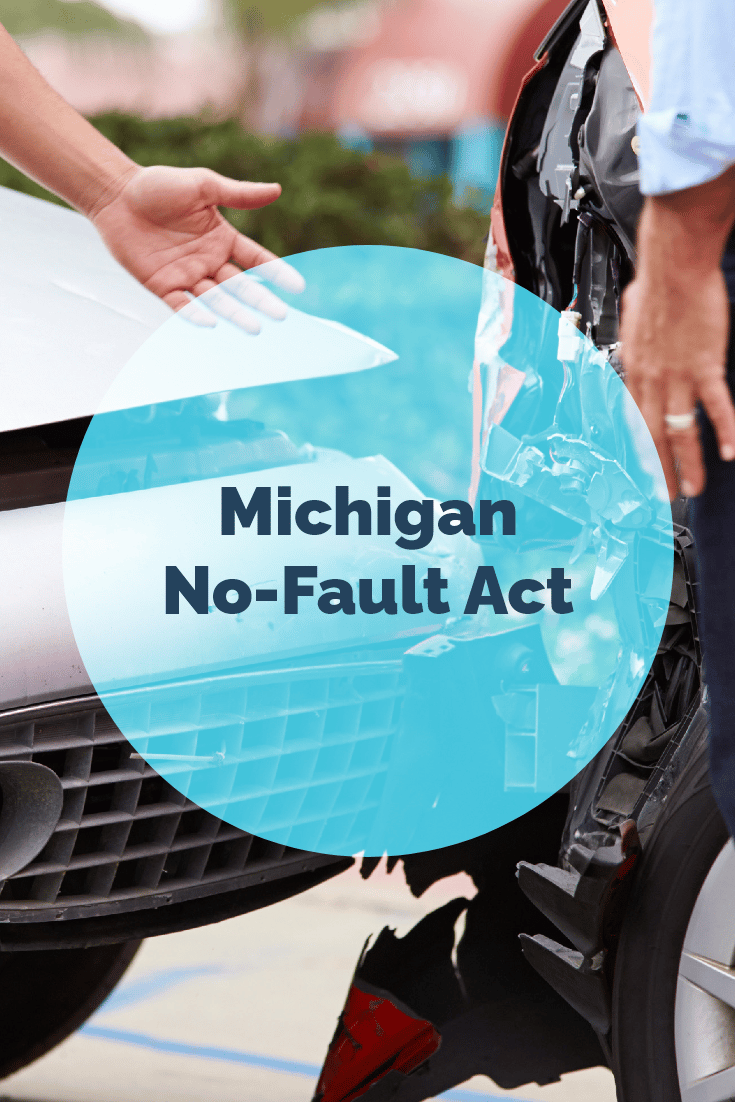Michigan No-Fault Act
Our insurance lawyers explain the two types of cases for accident victims under the No-Fault law

Many people ask our No-Fault lawyers why their own insurance company should pay anything when another driver caused the accident.
The answer to this question gets right to the heart of what Michigan’s No-Fault auto insurance law is all about.
To put it simply, the term “no-fault” means that both parties involved in a car accident or truck accident are entitled to No-Fault benefits (such as reimbursement for accident-related medical expenses and lost wages) from their own insurance companies, no matter who caused the accident.
There are two types of cases that a car accident victim may bring under Michigan’s No-Fault: first-party and third-party.
First-party: A first-party case is between the auto accident victim and his insurance company for No-Fault benefits, also called personal injury protection (PIP) benefits. These valuable benefits include medical expenses related to the auto accident, wage loss for the first three years following the accident, household replacement services (chores/help with children), payment for mileage to and from medical appointments and attendant care (nursing services). Again, in a first-party case, No-Fault benefits are usually paid out by a victim’s own insurance company.
There are two important steps you must take to secure your benefits in a first-party case. First, you must immediately file a No-Fault application for benefits with the applicable insurance carrier. This application MUST be filed within one (1) year from the date of the accident, or you will forever lose any benefits to which you might be entitled. Reimbursement for your No-Fault insurance benefits will not begin until you’ve filed this application.
Here is a sample application for No-Fault insurance benefits from the state of Michigan: Application for Bodily Injury Benefits
Your auto insurance company may require its own version. Please read about the importance of injury documentation and beware of masked injuries, as you will be asked to describe your injuries on this form. If you have problems filling out this form, please do not hesitate to call Michigan Auto Law at (800) 968-1001.
Secondly, if there are any items of reimbursable expense that are not paid by your insurance carrier, you must file a lawsuit for those particular items within one (1) year from the date the expenses were incurred. If this lawsuit is not filed within that one-year period, you will lose all rights to reimbursement for that those expense items.
Third-party: A third-party case is between the auto accident victim and the driver who caused the auto accident. In a third-party case, the auto accident victim sues the at-fault driver for pain and suffering damages, and excess (as well as possible future) economic benefits. In a third-party case, damages are usually paid out by the wrongdoer’s insurance company.
If the automobile accident in a third-party case took place more than three years ago, the victim cannot sue the other driver or the other driver’s insurance company for injuries, no matter how serious. The only exception is for minors.
It’s possible to have a No-Fault case even when there is no other car involved. For example, if you hit a telephone pole or hit a deer, you still have the right to a Michigan No-Fault case for insurance benefits, as long as the injury relates to a transportation function of the automobile involved in the accident.
Michigan No-Fault Insurance Lawyers Can Help Obtain Your Benefits and Damages
Michigan Auto Law is the state’s largest law firm practicing exclusively in car accident, truck accident and motorcycle accident cases. We have helped injury victims throughout Michigan for more than 50 years and three generations, and we can help obtain the insurance benefits and pain and suffering compensation you need. To speak with a No-Fault lawyer directly, please call (800) 968-1001 or fill out our consultation form.






